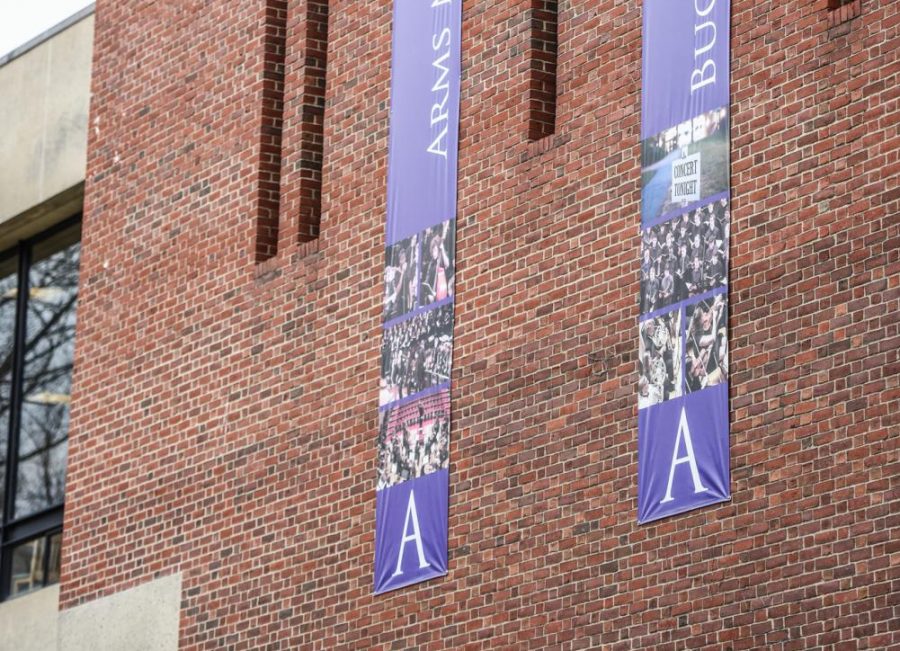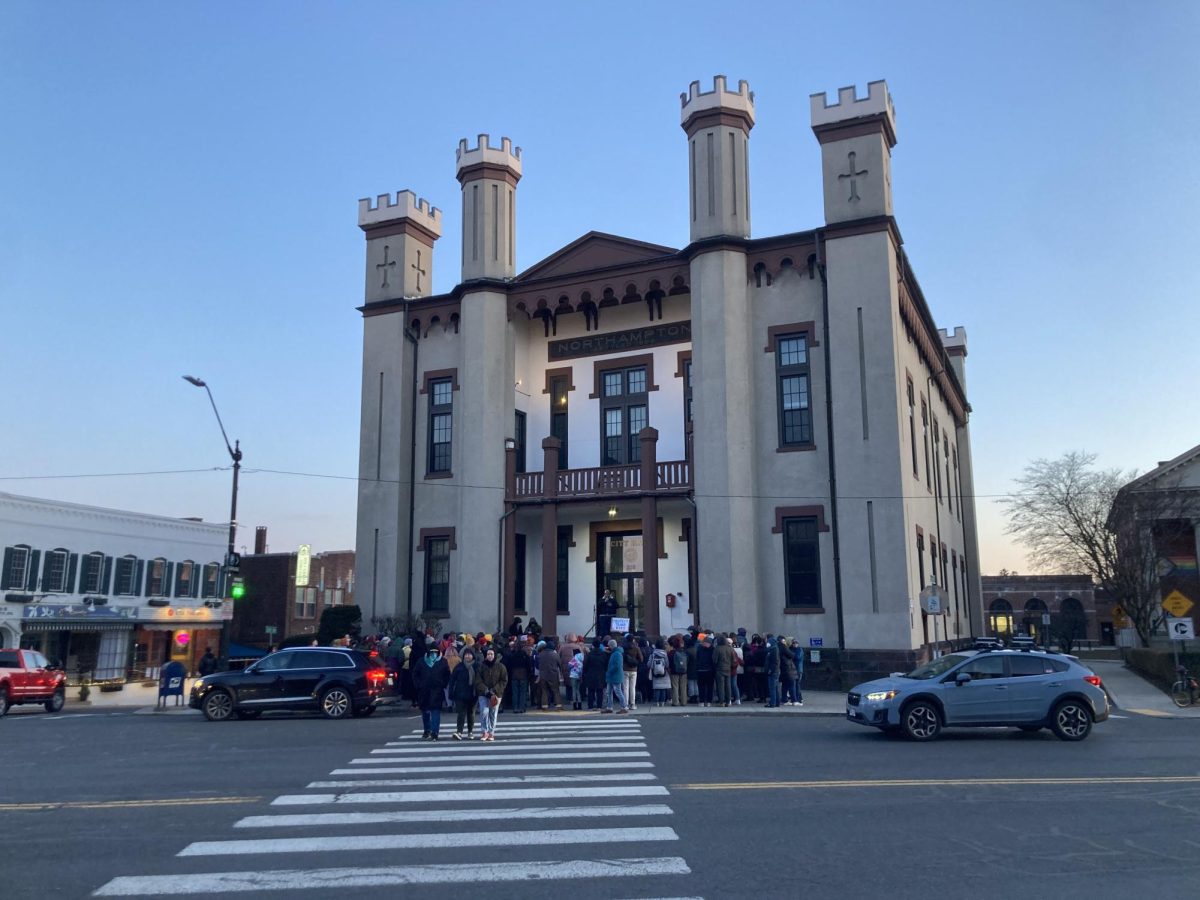Amherst College hosted performances by three experienced activists within the LGBTQ+ community in their Holden Theater, tackling the topic of transgender people in politics.
Wednesday’s performances ranged from an intense spoken word poem, to comical storytelling about coming of age to a dramatic account of transgender struggles through singing and acting.
Kai M. Green, an assistant professor of women’s, gender and sexuality studies at Williams College, is an accomplished poet, filmmaker, author, feminist and abolitionist, who focuses on Black sexual and gender agency, feminism and the state of social violence.
Green read a spoken word memoir he wrote in the second person that appeared to resonate with audiences, titled “A Body Made Home: Black Feminist Bridging.” The memoir set the scene of a mother, sometimes referred to as “Mama,” and her young daughter. The memoir encompassed the struggles and experiences of the mother throughout her life, which in turn reflected the daughter’s.
The mother spoke to the daughter throughout the poem, attempting to teach her self-love and how to respect the relationship with her own body. In the poem, Green referred to the body as a rhythmic analogy to a bridge.
“Bridge: a structure carrying an obstacle. This bridge called my body becomes structured and is trans, becomes trans,” Green stated.
Green then moved on to emphasize the different definitions and importance of a home.
“[A home] is something lost, something lost inside you, something you find, something you remember, something you won’t ever return to, something you get kicked out of,” he said, adding that a home can be a relationship or a bond, a terror or sometimes even a prison.
Next, Cecilia Gentili presented her story titled, “Trans when you are not Caitlyn Jenner.” Gentili, a trans woman, is currently the director of policy and public affairs at the Gay Men’s Health Crisis in New York City, the “world’s first and leading provider of HIV/AIDS prevention, care and advocacy,” according to GMHC’s website.
Originally from a farm in Argentina, Gentili explained her upbringing and her experiences with wanting to start her transition to a female under the Argentinian dictatorship in the 1970s. Gentili portrayed her experiences as a trans woman through comical storytelling, which generated many laughs from the audience.
Gentili also explained her frustration when she had seen Caitlyn Jenner unveil her transformation on the cover of Vanity Fair Magazine.
“Random people kept coming up to me like on the subways and stuff after Caitlyn’s transition,” Gentili said, “saying things like ‘I support you people,’ and I just remember thinking, ‘Why are these people talking to me about this? Who are you?’”
Gentili began to understand her gender identity from a very young age. Although her mother was accepting of Gentili’s identity, she wasn’t always supportive. Gentili reminisced on the time that she and her family were driving over railroad tracks into town when her brother whispered to her a false secret that when she was a baby she was found on the tracks in a basket.
Because Gentili’s town was the place of common UFO sightings, Gentili explained how she truthfully thought that she was an alien and that her alien family left her by the railroad tracks by accident. Her alien qualities were reflected in the fact that she wanted to be a girl, yet had the biology of a boy. Gentili remembers telling her grandmother about her theory, in which the grandmother supported her and would lay outside with Gentili on a blanket, waiting for the aliens to take her back.
“I think I look at institutions as the most effective way of colonization,” said Gentili. “I think my grandmother, the fact that she was born in a farm and never left that farm and never had any contact with institutions, made her so open to my sexuality and accepting of me and less contaminated by the normal things of institutions.”
The third presenter was Rosza Daniel Lang/Levitsky, a scholar, cultural worker and organizer at Brooklyn’s Glitter House in New York City. Lang/Levitsky is one of the founders of the Artists and Cultural Workers Council of Jewish Voice for Peace.
Lang/Levitsky performed a show of the history of transgender people through the use of decorative cloths, backdrops and lights. Lang/Levitsky progressed into the heritage of homosexuality, retracing its history all the way back to the time of the Romans. Lang/Levitsky also performed a song called “Rachel Says” on keyboard and sang about the struggles of a transgender woman finding work, experimenting with drugs and growing up.
“To me, the most important things in trans politics right now are the things that don’t get talked about,” Lang/Levitsky said. “It’s the sex work of transgender people because it’s sometimes hard for them to find other jobs. It’s the policing of folks of color in general, women of color, African descendants, and immigrants in particular…some things that are most crucial to people’s survival.”
Gretchen Keller can be reached at [email protected] and followed on Twitter at @gretchenkellerr.




















